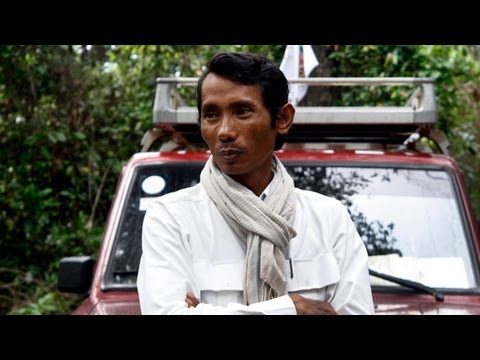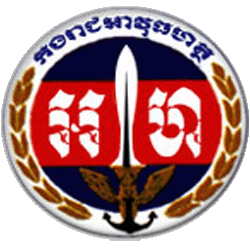Human Rights Watch released a sizzling report today that details the Hun Sen regime’s three-decade history of extrajudicial killings, and shows that the culprits have been rewarded with high-ranking government positions. The document starts out with “A-Team” death squads in the 1980s and the signing of the 1991 Paris Peace Agreement, and concludes with the shooting of environmental activist Chut Wutty last April:
According to accounts by Veal Bey residents, local businesspeople, and various human rights and other nongovernmental investigators who provided information to Human Rights Watch in Koh Kong and Pursat provinces, and in Phnom Penh, Wutty was shot after he was confronted by a team of three Timber Green security personnel and gendarme officers armed with AK-47 assault rifles who were summoned by subordinates at Veal Bey from the above mentioned gendarme and company check-point. These security forces, described as acting primarily under the authority of an armed, masked, and drunk Timber Green employee in military uniform from the checkpoint, insisted that Wutty and the journalists turn over all the photographs they had taken, which they did. Wutty tried to leave, taking the two journalists with him, but was prevented from doing so after he was told that his group first had to meet a senior gendarme officer at their headquarters in Koh Kong. While in the driver’s seat of his car, Wutty was shot amidst a verbal altercation with the security forces, during which a junior gendarme In Rattana, was also fatally shot.
(For background, one journalist who was traveling with Wutty later recounted the experience.)
It doesn’t take much to figure out that a gang of thugs is running the Cambodian People’s Party. Still, the government seems to hope this is chatter that will pass (Phnom Penh Post):
But Information Minister Khieu Kanharith said on the sidelines of a meeting this morning that Human Rights Watch was just trying to make noise ahead of ASEAN, and called it standard practice for rights groups and protestors during international meets.
But this isn’t your typical, titular ASEAN meeting. Barack Obama will be the first US president to attend the summit in Phnom Penh next Monday and Tuesday, and HRW is raising the issue just as international eyes are, in a rarity, on Cambodia.
 Facebook
Facebook  Twitter
Twitter  Soundcloud
Soundcloud  Youtube
Youtube  Rss
Rss 
